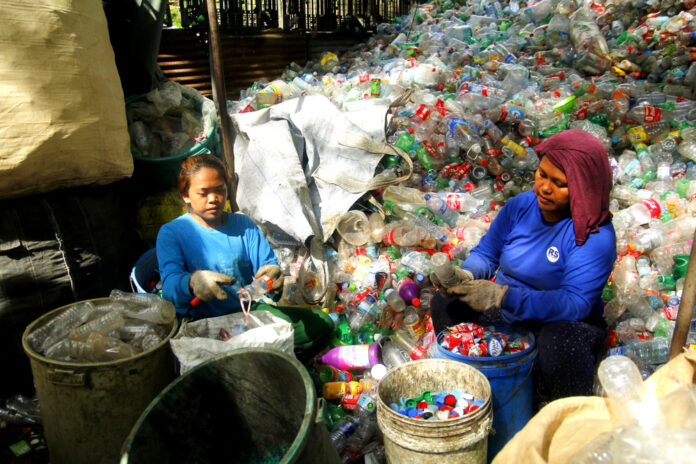The countdown has begun for plastics-producing companies to demonstrate by the end of the year the steady recovery and diversion of at least 20 percent of their 2022 plastic footprint as mandated by the Extended Producer Responsibility (EPR) Act. The goal is to widen such recovery and diversion to 80 percent over five years or by 2028 in keeping with the reduction of non-environmentally friendly packaging and prevention of plastic waste from leaking into the environment.
According to the Department of Environment and Natural Resources (DENR), the law obliges companies with assets exceeding P100 million to register their EPR programs with the agency although the same is only encouraged, not mandated, of small scale plastics companies.
assures large-scale entrepreneurs and companies that it would extend maximum assistance to help businesses comply with the Extended Producer Responsibility (EPR) Act.
The EPR Act mandates large enterprises that generate plastic packaging to establish programs for comprehensive management of plastic packaging waste throughout its lifecycle that should emphasize waste reduction, recovery and diversion as well as the use of methods like reduction of non-environmentally friendly packaging and prevention of plastic waste from leaking into the environment.
The law specifically obliges companies with total assets exceeding P100 million to have their EPR programs registered. However, it is currently not mandatory for micro, small and medium enterprises but are still encouraged to register their EPR programs with the DENR.
Jonas Leones, DENR undersecretary for policy, planning and international affairs, said companies need to focus on the positive aspects of the law, including the available incentives, rather than dwell on penalties.
Under the EPR law, enterprises may apply for incentives following its approval outlined in the National Internal Revenue Code of 1997, as amended.
According to the DENR’s Environmental Management Bureau, 745 companies with approximately 535 million kilograms of plastic footprint and a diversion target of around 107 million kilograms have registered and committed to hit their individual goals by yearend.
To ensure compliance, the agency has worked closely with key government agencies as the Department of Social Welfare and Development for setting inclusive standards and safeguards in the informal waste sector; the Department of Science and Technology for an information hub on cleaner technology; and the Department of Trade and Industry (DTI) for waste management data and eco-label adoption, among others.
The agency said there have also been collaborations with the Department of the Interior and Local Government for partnerships with local government units and communities; the Department of Labor and Employment for fair wage policy implementation; and the Department of Finance for fiscal incentive policies.
The DENR said an estimated 4,000 large enterprises are required to register their EPR programs, based on DTI data.







